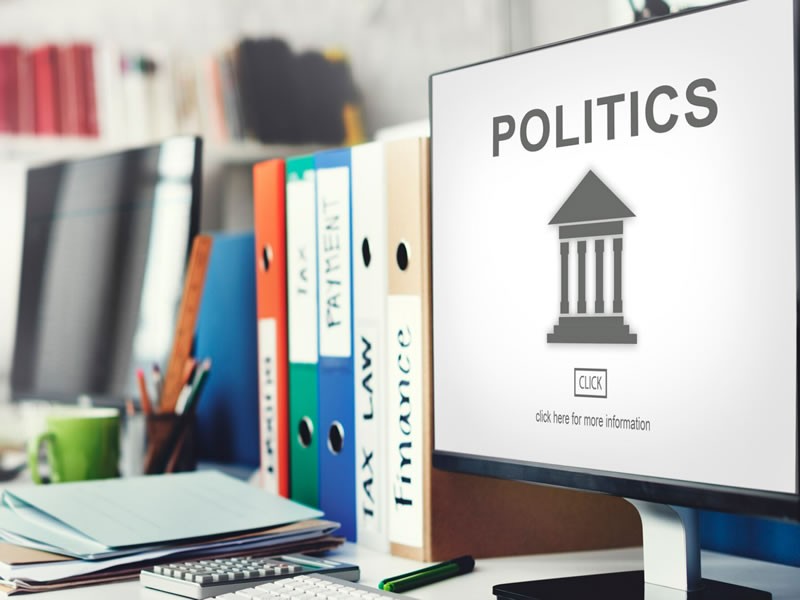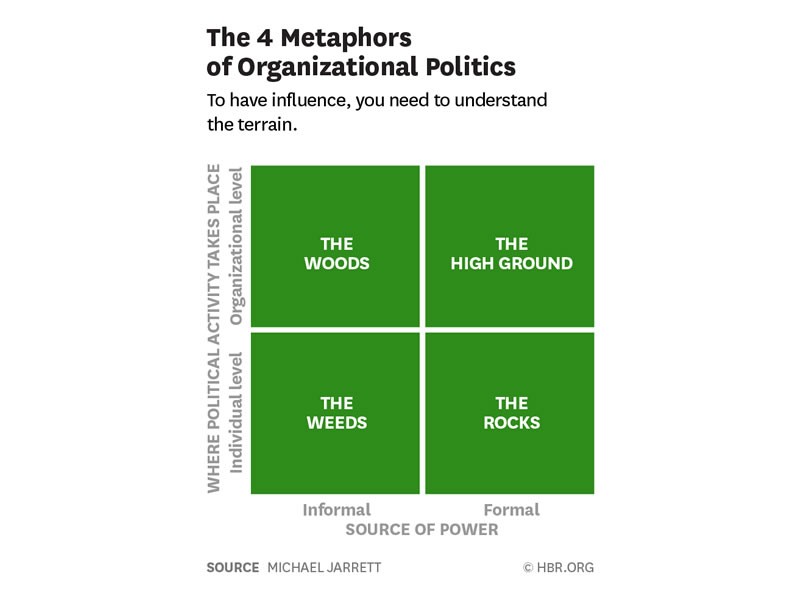Insight Blog
Agility’s perspectives on transforming the employee's experience throughout remote transformation using connected enterprise tools.
12 minutes reading time
(2473 words)
Organizational politics: Pros and Cons? Here’s what you need to know in 2023
In this article, we will delve into various forms of organizational politics, elucidating their mechanisms, the reasons for their existence, and the impact they can have on a company when misapplied.
Organizational politics encompasses an individual's personal interests and agenda within a company, and it often brings about challenges. When dysfunctional politics escalate, they can severely jeopardize an organization.
While it's essential to remain vigilant about their disruptive potential, it's equally crucial to recognize that not all aspects of organizational politics are detrimental.
Organizational politics in the workplace, a survey was done and according to a 2023 survey by Glassdoor, 70% of employees say they have experienced organizational politics in their workplace. The survey also found that employees who experience organizational politics are more likely to be stressed, dissatisfied with their jobs, and looking for new employment, we will go into this in more detial below.
In reality, as a company expands, its survival may rely on the strategic maneuvers of those involved in these political dynamics.
In this article, we will delve into various forms of organizational politics, elucidating their mechanisms, the reasons for their existence, and the impact they can have on a company when misapplied.
Comprehending these dynamics is of utmost importance if you're a manager or aspire to lead a project – so, if that describes you, continue reading!
What is organizational politics?
In 2023, organizational politics refers to the intricate power and influence dynamics within an organization. It encompasses the ways individuals and groups interact to pursue their objectives, often employing implicit or unacknowledged methods.
These political dynamics can either have positive or negative implications but are invariably present to some extent.
What's office politics As per Wikipedia Workplace politics encompasses the dynamics and conduct of human interactions that revolve around power and authority.
It serves as a means to gauge operational capabilities and harmonize the various perspectives of stakeholders.
This phenomenon is commonly referred to as office politics or organizational politics.
Now a days, organizational politics is influenced by several factors, including:
- Increasing Organizational Complexity: Organizations are growing more intricate, featuring numerous stakeholders, competing interests, and convoluted decision-making processes. This complexity provides opportunities for individuals to leverage their power and influence in achieving their objectives.
- Rise of the Gig Economy: The gig economy fosters a more fluid workforce, with individuals frequently transitioning between different organizations and projects. This fluidity can impede relationship-building and trust, potentially leading to more political behavior.
- Globalization of the Workplace: Organizations are increasingly operating on a global scale, with employees from diverse cultures and backgrounds collaborating. This diversity can sometimes lead to misunderstandings and cultural conflicts, contributing to organizational politics.
Organizational politics may manifest in various ways, such as:
- Networking: Establishing relationships and alliances to access information, resources, and support.
- Coalition Building: Groups uniting to pursue common goals.
- Backstabbing: Undermining or sabotaging others to gain an advantage.
- Office Gossip: Spreading rumors and negative information to harm reputations.
- Unwritten Rules: Unofficial norms governing how things are done within the organization.
The impact of organizational politics can be significant for both individuals and organizations. For individuals, it can result in stress, anxiety, burnout, and harm to their careers and reputations. For organizations, it can lead to decreased productivity, morale, and innovation.
Nevertheless, organizational politics is not solely negative. It can also be harnessed for positive purposes.
Individuals can use their power and influence to advocate for change, promote diversity and inclusion, and create a more favorable and productive work environment.
Where does organisational culture come from?
Organizational culture is a complex concept that influences how individuals within a company interact, make decisions, and shape the overall environment.
It is not something that can be created overnight but is instead the result of a combination of factors that develop and evolve over time. Here are four key sources of organizational culture:
- Leadership and Founders: Organizational culture often takes its cues from the leadership team and founders of the company. Their values, beliefs, and behaviors set the tone for the entire organization. For instance, if the founders prioritize innovation and risk-taking, the culture is likely to be more entrepreneurial and open to change. Conversely, if leaders emphasize tradition and stability, the culture may be more conservative and resistant to change.
- Employee Values and Beliefs: The collective values, beliefs, and attitudes of employees play a significant role in shaping an organization's culture. Over time, as employees with similar values are hired and retained, these values become ingrained in the company's DNA. This is why many organizations place a strong emphasis on cultural fit during the hiring process. Employees who align with the existing culture tend to reinforce and perpetuate it.
- History and Traditions: An organization's history, including significant events, milestones, and past successes or failures, can influence its culture. Past experiences and how they were handled can leave a lasting mark on an organization's identity. Traditions, rituals, and symbols can also play a role in reinforcing cultural norms. For example, an organization that celebrates teamwork and collaboration may have traditions like team-building exercises or awards for collaborative achievements.
- External Environment: External factors, such as industry norms, regulatory requirements, and the competitive landscape, can shape an organization's culture to some extent. For example, companies in highly regulated industries may have a culture that emphasizes strict adherence to rules and procedures. The competitive environment can also drive a culture of urgency, innovation, or customer-centricity, depending on the industry demands.
In summary, organizational culture is not created in isolation but is the result of a complex interplay between leadership, employees, historical influences, and external factors.
It evolves over time and can be influenced by deliberate efforts to shape and change it.
Understanding these sources of organizational culture is essential for leaders and managers who want to foster a culture that aligns with their strategic goals and values.
What areThe 4 Types of Organizational Politics
Organizational politics can be categorized into four metaphorical domains: the Weeds, the Rocks, the High Ground, and the Woods.
Each domain comes with its own rules for achieving success.
- The Weeds represent the informal networks and relationships within organizations. To navigate the Weeds effectively, you should develop relationships with key individuals, regardless of their official titles, and maintain discretion and trustworthiness.
- The Rocks symbolize the formal structures and processes within organizations. To navigate the Rocks effectively, you must comprehend the rules and procedures, as well as have the ability to build consensus and rally support for your ideas.
- The High Ground embodies the organization's values and culture. To navigate the High Ground effectively, you should align with the organization's values, conduct yourself ethically and honestly in your interactions, and serve as a role model for your colleagues.
- The Woods signify the uncertain and unpredictable aspects of organizational life. To navigate the Woods effectively, you should remain open to new ideas and change, be willing to take risks, and nurture creativity and innovation.
Navigating these domains necessitates an understanding of two critical dimensions: the level of political activity and the source of power.
The level of political activity can be individual, group, or organizational.
- Individual political activity involves using your personal skills and influence to achieve your objectives.
- Group political activity involves building coalitions and alliances to pursue shared goals.
- Organizational political activity entails utilizing the formal structures and processes of the organization to achieve your aims.
The source of power can be soft or hard.
- Soft power is informal and implicit, stemming from your relationships, influence, and adherence to norms.
- Hard power is formal and explicit, arising from your positional authority, expertise, directives, as well as rewards and controls.
To thrive in organizational politics, you must adeptly navigate all four domains and effectively utilize both soft and hard power.
Follow us and access great exclusive content everyday: Follow us on Google News
Here are some strategies for navigating each domain
Weeds
- Cultivate relationships with key figures across the organization, irrespective of their official roles.
- Maintain discretion and trustworthiness.
- Be ready to extend favors to others and not hesitant to seek reciprocation.
You may also like: Best Apps for Employees: UPDATED 2022 – A Complete Guide
Rocks
- Grasp the organization's formal rules and procedures.
- Master the art of consensus-building and getting people on board with your ideas.
- Exhibit persistence and unwavering commitment to your goals.
High Ground
- Align yourself with the organization's values and culture.
- Uphold ethical and honest conduct in your dealings.
- Set a positive example for your colleagues.
Free ebook: How To Get Your Intranet Off The Ground
Woods
- Embrace innovation and change.
- Courageously take calculated risks.
- Foster creativity and ingenuity.
By following these recommendations, you can significantly enhance your chances of success in the intricate and ever-evolving landscape of organizational politics.
The impact of organizational politics
Organizational politics can serve as a double-edged sword. On one hand, studies show that employees with political acumen tend to achieve more power, effectively manage stress, and meet organizational objectives. Moreover, organizational politics can aid a company's survival and growth.
Conversely, uncontrolled organizational politics can have detrimental effects, including heightened stress, diminished productivity, fostering cynicism, increasing employee turnover, fostering miscommunication, and breeding resentment.
- Gaining Power: This involves acquiring influence, control, or authority within an organization, enabling one to make significant decisions and impact the direction of the company.
- Boosting Productivity: This refers to enhancing efficiency and output, often through improved processes, motivation, or resource allocation, resulting in higher work performance.
- Gaining Recognition: This pertains to earning acknowledgment and appreciation for one's contributions, skills, or achievements, which can lead to career advancement and personal satisfaction.
- Resolving Disputes: It involves mediating and settling conflicts or disagreements among individuals or groups in a fair and constructive manner, fostering a harmonious work environment.
- Promoting Personal Objectives: This encompasses advocating for one's own goals, aspirations, or interests, which may or may not align with the broader organizational objectives.
- Protecting Self-Interest: This relates to safeguarding one's personal concerns or well-being, often by making choices that prioritize individual needs, even if they diverge from collective interests.
- Earning Money and Income: This involves generating financial rewards or compensation for one's work, which can be essential for livelihood and achieving financial stability.
- Developing Power Contacts: This entails establishing relationships with influential individuals or groups, which can be advantageous for gaining support, information, or opportunities within an organization.
How to manage organizational politics
Organizational politics are an inherent aspect of large organizations, yet HR professionals, managers, and leaders can adopt measures to mitigate their adverse effects:
- Enhance interpersonal skills. Develop effective communication, relationship-building, and conflict resolution abilities.
- Foster transparency. Keep your team informed about organizational objectives, changes, and decisions.
- Cultivate empathy towards employees. Understand their viewpoints and challenges.
- Promote respectful collaboration across departments. Work in unity to attain shared goals.
- Maintain impartial relationships with all colleagues. Avoid favoritism and preferential treatment.
- Exhibit flexibility and adaptability. Adjust your approach when necessary.
- Show appreciation and value employees. Acknowledge their contributions and offer growth opportunities.
- Stay vigilant for issues. Address any problems at an early stage.
- Encourage employee participation. Create a safe environment for them to voice concerns.
- Intervene as needed. If you observe negative political behavior, take steps to address it.
- Lead by example. Demonstrate the conduct you wish to see in your team.
What are the Pros of Organizational politics
Organizational politics encompass the intricate and informal interactions among individuals or groups within an organization. While it is frequently viewed in a negative light, there are notable advantages to consider.
Here are some of the benefits of organizational politics:
- Building Relationships and Networks: Engaging in organizational politics often involves forging connections with others in the organization. This fosters greater collaboration and cooperation, ultimately benefiting the organization as a whole.
- Enhancing Organizational Understanding: Organizational politics can serve as a conduit for individuals to gain insights into the informal rules, norms, and prevailing power dynamics within the organization. This knowledge aids in navigating the organization effectively and achieving personal goals.
- Developing Political Skills: Mastery of organizational politics necessitates the ability to navigate complex relationships, build alliances, and persuade others. These skills are valuable not only in the workplace but also in various aspects of life.
- Driving Change and Innovation: Organizational politics can be a catalyst for challenging the status quo and advocating for change. While individuals may initially be driven by self-interest, their actions can result in broader changes that benefit the organization as a whole.
It is important to acknowledge that poorly managed organizational politics can lead to negative consequences such as conflict, mistrust, and reduced productivity.
However, when harnessed effectively, organizational politics can become a force for positive transformation within an organization.
What are the Cons of Organizational politics
- Reduced Productivity: Employees entangled in office politics often divert their attention from their core responsibilities. Instead of concentrating on projects and meeting deadlines, they may invest time in advancing personal agendas or undermining their colleagues, resulting in an overall decline in team or organizational productivity.
- Elevated Stress and Discontent: Organizational politics can cultivate a stressful and unpleasant work atmosphere, where employees constantly feel the need to guard against potential betrayals. This heightened stress, along with an accompanying sense of dissatisfaction, can lead to burnout.
- Impaired Morale and Collaboration: Organizational politics can harm morale and collaborative efforts. When trust erodes among employees, it impedes effective teamwork. Consequently, this may foster a toxic work environment and diminished job satisfaction.
- Unjust Decision-Making: Organizational politics can give rise to unfair decision-making processes. Those adept at playing the political game may secure promotions and benefits irrespective of their actual performance, which can demoralize other employees and tarnish the organization's reputation.
- Heightened Turnover: Employees disheartened by excessive organizational politics are more inclined to leave, incurring higher turnover costs and recruitment challenges to replace qualified personnel.
In addition to these drawbacks, organizational politics can precipitate various other adverse outcomes, including:
- Miscommunication
- Suboptimal decision-making
- Diminished innovation
- Increased conflict
- Impaired customer relationships
Collectively, organizational politics can significantly undermine individuals, teams, and organizations. Recognizing these potential consequences is vital, and measures should be taken to mitigate the negative impact.
Here are some strategies to minimize the adverse effects of organizational politics:
- Cultivate Honesty and Transparency: Foster open and honest communication with colleagues and superiors. Avoid engaging in gossip or behind-the-scenes discussions.
- Forge Relationships with Key Stakeholders: Develop connections with influential individuals in your organization to comprehend the political landscape and garner support for your ideas.
- Embrace Team Collaboration: Prioritize teamwork and assist your colleagues in achieving success. Avoid undermining or sabotaging your peers.
- Stay Focused on Your Responsibilities: Dedicate yourself to your work, consistently delivering high-quality results and meeting deadlines. This will establish your reputation as a reliable and valuable employee.
Categories
Blog
(2726)
Business Management
(333)
Employee Engagement
(213)
Digital Transformation
(185)
Growth
(124)
Intranets
(121)
Remote Work
(61)
Sales
(48)
Collaboration
(43)
Culture
(29)
Project management
(29)
Customer Experience
(26)
Knowledge Management
(21)
Leadership
(20)
Comparisons
(8)
News
(1)
Ready to learn more? 👍
One platform to optimize, manage and track all of your teams. Your new digital workplace is a click away. 🚀
Free for 14 days, no credit card required.
















